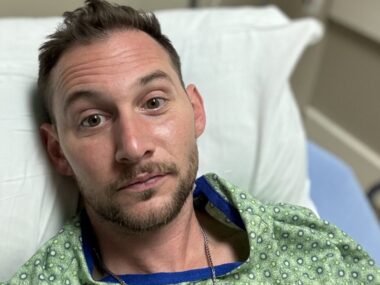IPMSSG Issues Guidelines on Participation of MS Youngsters in Clinical Trials
Written by |

The International Pediatric Multiple Sclerosis Study Group (IPMSSG) has updated its guidelines regarding the participation of children and adolescents with multiple sclerosis (MS) in clinical trials.
The new series of guidelines were published recently in Neurology, the journal of the American Academy of Neurology (AAN), in an article titled “Clinical trials of disease-modifying agents in pediatric MS – Opportunities, challenges, and recommendations from the IPMSSG.”
Current regulations restrict the participation of children and adolescents younger than 18 years in clinical trials.
Under the Pediatric Research Equity Act of 2003 and the Pediatric Regulation, the U.S. Food and Drug Administration (FDA) and the European Medicines Agency (EMA), respectively, allow children and adolescents with MS to participate only in trials assessing the safety and effectiveness of therapies that have been approved previously for adult patients.
“As a result, over the last 6 years, 6 clinical trials [NCT02137109; NCT02410200; NCT01892722; NCT02201108; NCT02283853; and NCT03368664] testing 5 agents [Tysabri (natalizumab); Tecfidera (dimethyl fumarate); Gilenya (fingolimod); Aubagio (teriflunomide); and Lemtrada (alemtuzumab)] have been launched in pediatric MS,” the researchers wrote.
Based on information from these past trials, the IPMSSG released a set of new consensus guidelines for future clinical trials involving children and adolescents with MS. These include:
- Regulatory recommendations:
- Regulatory agencies across the globe should ensure clinical trial design requirements involving children with MS remain consistent;
- For each therapy tested, only one Phase 3 trial should be conducted;
- Trials assessing the pharmacokinetic/pharmacodynamic properties (how a drug is absorbed, distributed, metabolized, and eliminated from the body) of a new therapy should be completed beforehand to avoid the administration of the compound at inappropriate doses in children with MS;
- Preclinical studies in animal models testing therapies intended for children should be performed early on to avoid postponing clinical trials in pediatric MS patients.
- Trial design recommendations:
- Placebo-controlled trials of immunomodulatory agents shown to be effective in adult MS patients should not be performed in children with MS (no need for a placebo group);
- Phase 3 trials involving adult patients should, in some cases, consider the enrollment of adolescents with MS;
- For therapies that have been well-studied in adult patients, open-label studies should be sufficient for approval in pediatric MS patients;
- If an open-label trial is insufficient to grant therapy approval for pediatric MS patients, then a brief controlled trial with a magnetic resonance imaging (MRI) primary endpoint is recommended;
- In randomized controlled trials of immunomodulating agents, Gilenya (or other treatments commonly used in pediatric MS) should be used as a control therapy;
- In Phase 3 trial analyses measuring the time to an event (e.g., MS relapse) should be preferred to those measuring the annual rate of an event (e.g., annual relapse rate) to allow patients to switch to the most effective treatment faster;
- In trials testing add-on therapies, the effects of the new therapy may be directly compared to a placebo, provided the immunomodulatory agents used are present in both groups;
- Safety monitoring recommendations:
- Open-label extension studies should be performed in all clinical trials involving children with MS;
- Open-label studies should be designed to monitor the safety of children younger than 12.
In 2018, the IPMSSG acknowledged the guidelines regulating the participation of children and adolescents with MS on clinical trials needed to be updated, and in January, organized a meeting in New York City to discuss possible changes. The meeting was sponsored by the National MS Society and the MS Society of Canada.
The IPMSSG has 165 registered members from 44 countries worldwide. Of the 162 members who were invited to provide feedback on the consensus guidelines, 70 gave their opinion, and only one disagreed with the wording used in some of the recommendations.
“Thankfully, the number of pediatric MS cases is low compared to adult cases — but these are children, facing a chronic illness and we need to do everything we can to help them,” Emmanuelle Waubant, MD, professor of neurology at the University of California San Francisco and lead author of the study, said in a press release.
“We are confident these consensus recommendations will help address the need for high-quality evidence to inform the optimal treatment of children and teens living with multiple sclerosis,” Waubant said.


